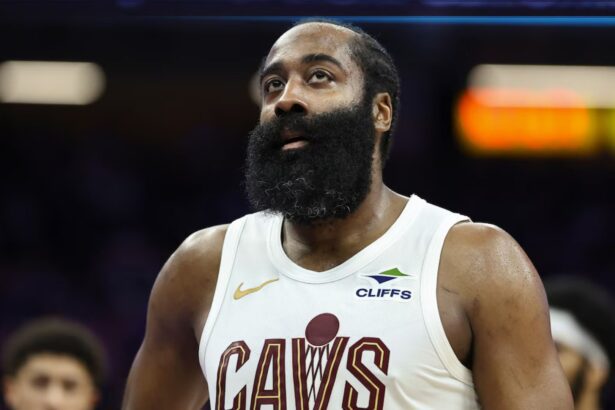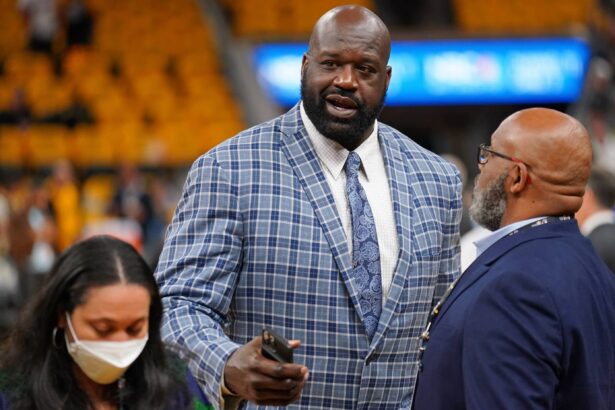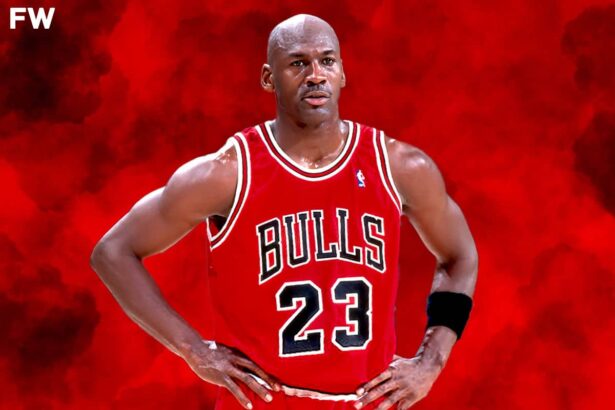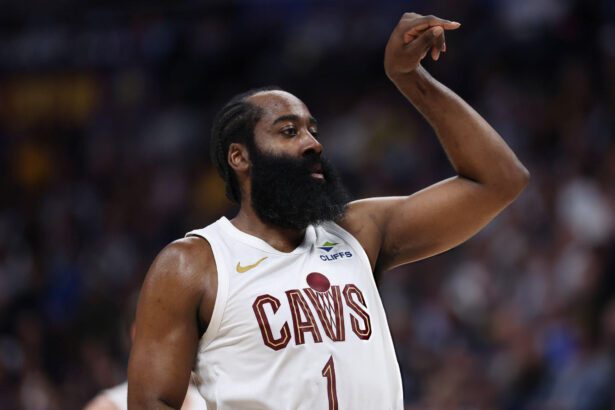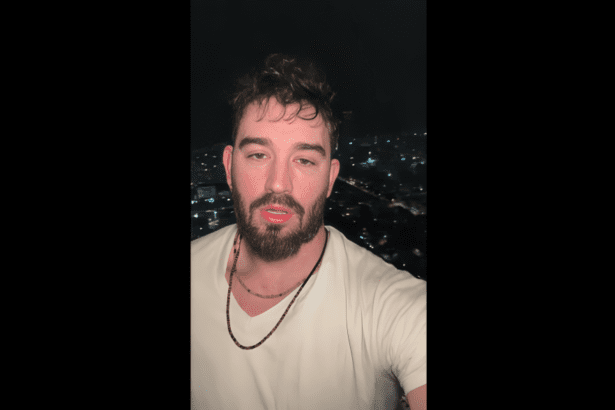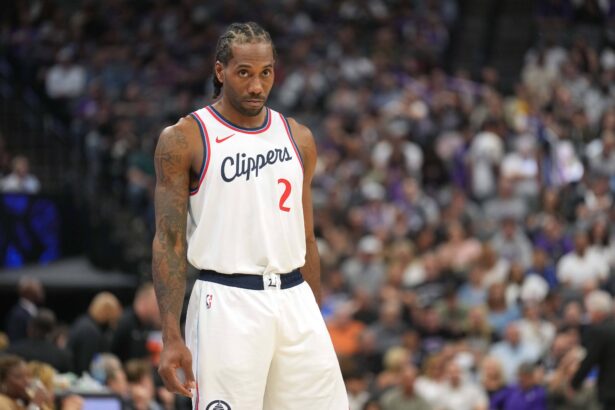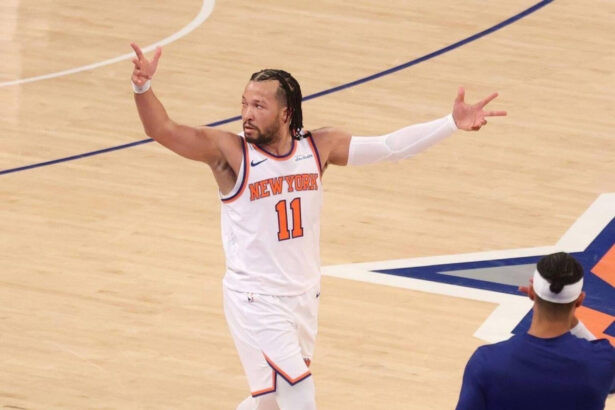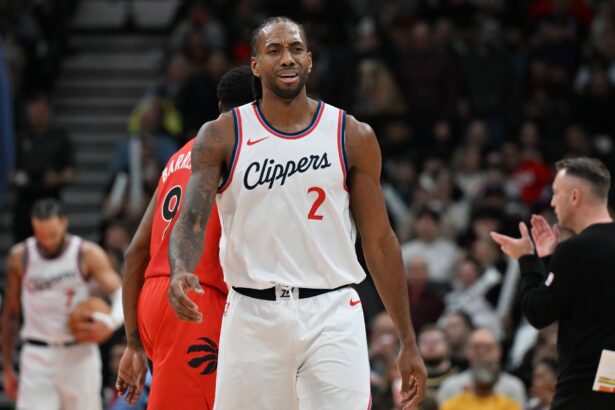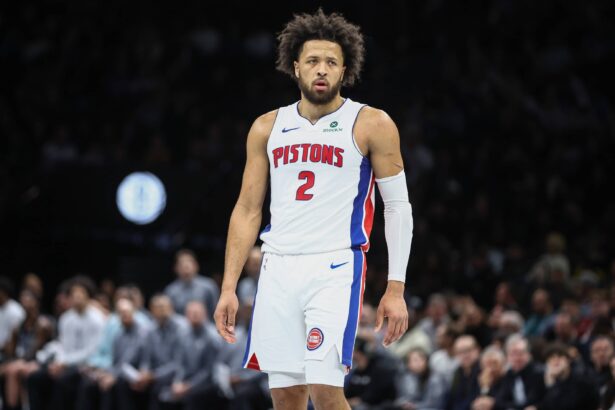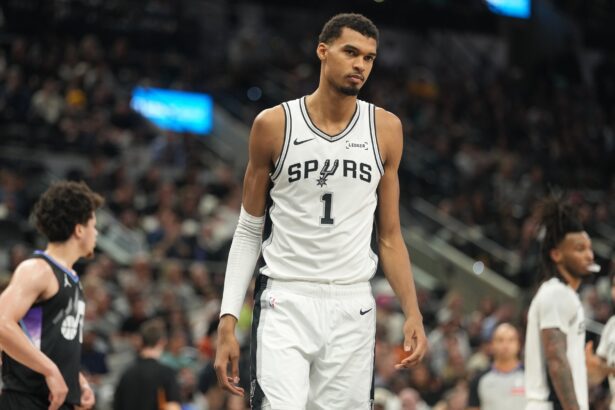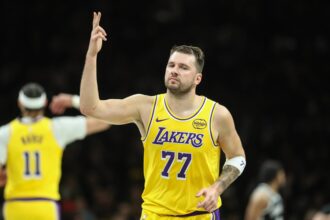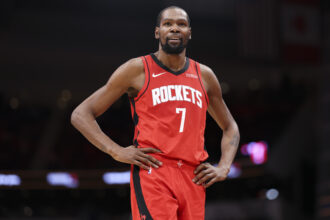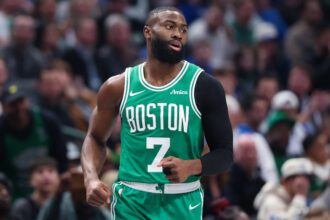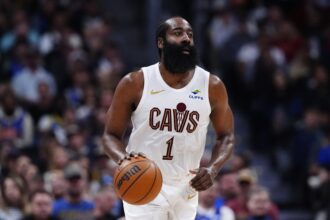It is not looking good for the Lakers this season. After faltering to the Houston Rockets by 16 points, they somehow managed another double-digit defeat, this time losing to the Atlanta Hawks by 16 points. At a 24-25 record, the Lakers are a very average team at best, although they are looking very bad as the weeks have gone by. LeBron James and Anthony Davis have each performed at an All-Star level, although they are not completely devoid of blame.
It is time to prepare the Lakers “Blaming Tree” to get an indication of which important figures in the franchise need to receive blame for the poor season in 2023-24. The championship goals of the Lakers seem unrealistic at this point and there isn’t much that can be done barring some blockbuster trades that probably should have happened already.
1. Rob Pelinka
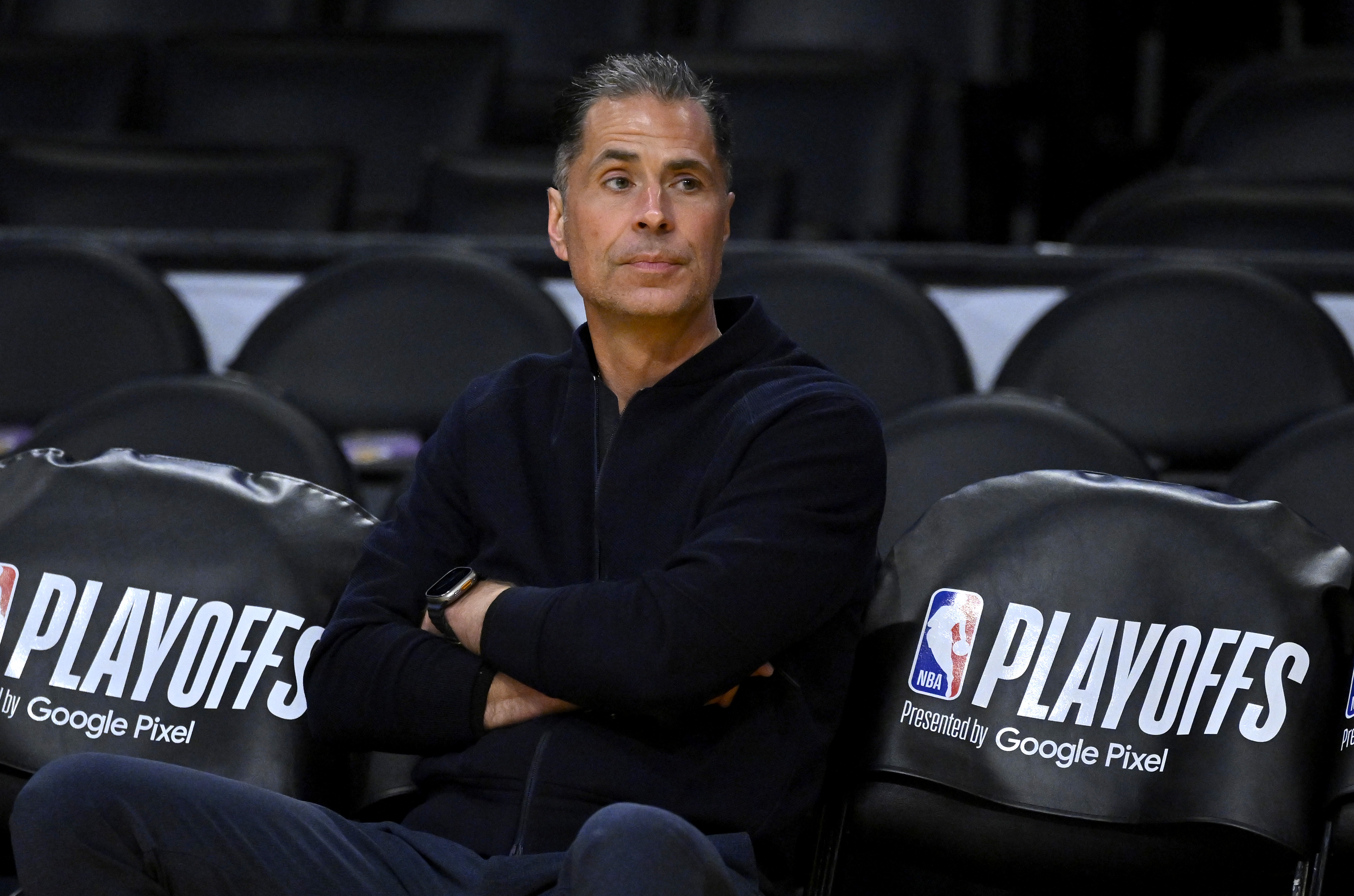
Why We Blame Rob Pelinka: The head of the front office has not traded for an All-Star yet and his free agency signings have flopped because there aren’t any elite defenders or shooters on the team.
The Lakers’ defensive struggles, currently ranking 19th in the league, prove the shortcomings of Rob Pelinka’s decisions this year. The absence of defenders (outside of the 25-year-old Jarred Vanderbilt who was hurt at the beginning of the season), has left the team vulnerable on the defensive end.
This lack of perimeter defense puts immense pressure on Anthony Davis, who finds himself shouldering the bulk of defensive responsibilities and he isn’t the most reliable superstar, to say the least. The offseason acquisitions of Christian Wood, who is not known for his defensive prowess, and the raw, immature Jaxson Hayes have not adequately addressed the team’s need for big men.
Moreover, the depth of the roster is questionable, and Pelinka’s decisions seem to have deviated from the formula that made the Lakers dominant in 2020 – a combination of size and defensive prowess. Mistakes, such as the contract given to D’Angelo Russell, and potential oversights in evaluating players like Rui Hachimura, have further weakened the team’s foundation.
The failure to engage in potential trades for players like Pascal Siakam, Terry Rozier, and OG Anunoby (who are all no longer available) and the hesitation in pursuing talents like Zach LaVine, DeMar DeRozan, and Dejounte Murray, highlight missed opportunities.
By building a team that heavily relies on the aging LeBron James, who is now 39, Pelinka may have made a significant strategic error. The Lakers seem to have strayed from the winning formula that brought them success in 2020, and the consequences are evident in their current defensive struggles. Add in the fact that the Lakers rank 26th in three-pointers made, this roster will not succeed in the modern NBA and Pelinka has the majority of that blame.
2. Darvin Ham
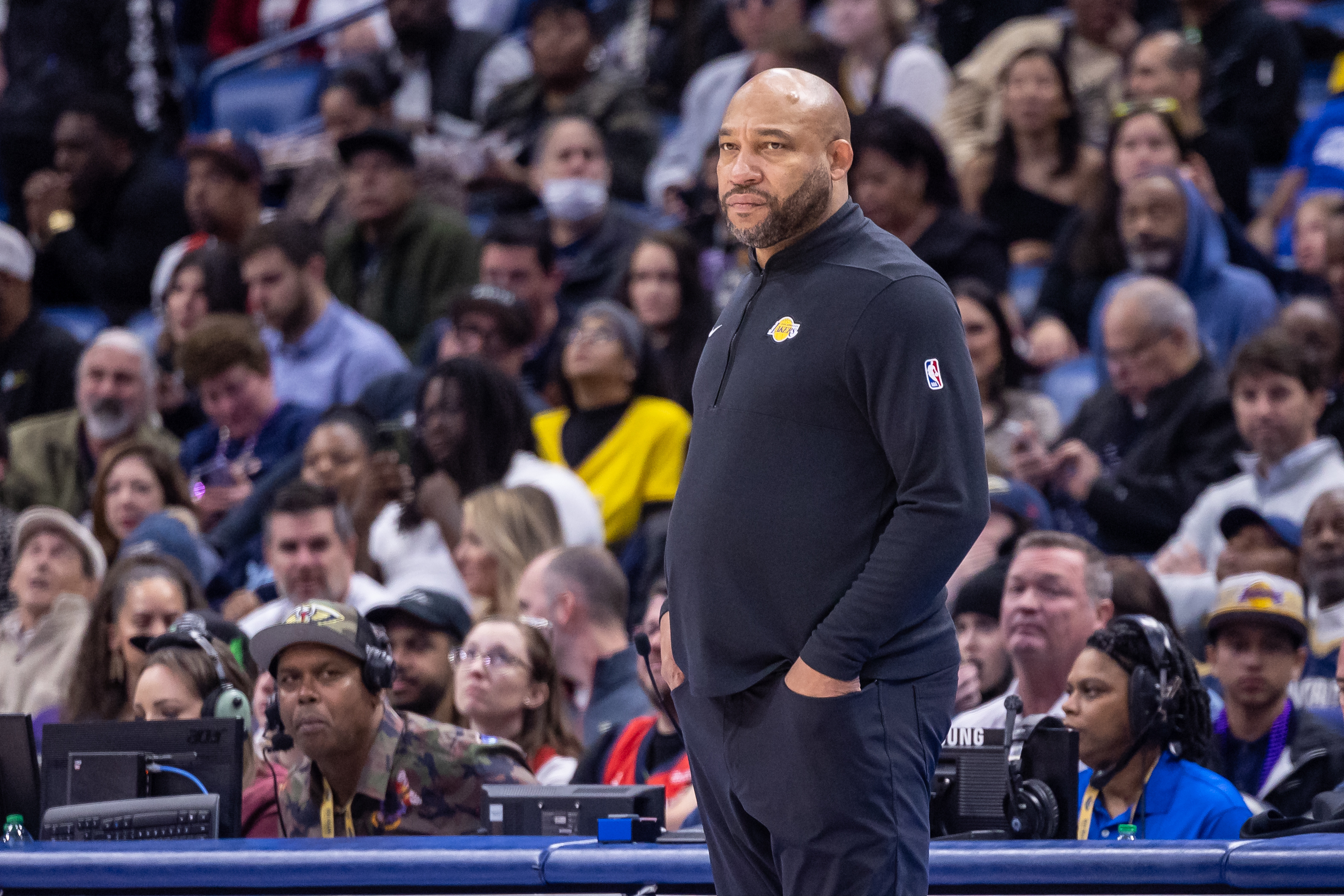
Why We Blame Darvin Ham: Ham could be losing trust from his players, and has not managed to fix a leaky defense for two seasons.
Darvin Ham has come under scrutiny for the team’s persistent struggles on the defensive end, ranking 19th in the league this season and even ranking 20th last year. The absence of defensive improvement over this period raises questions about Ham’s effectiveness in his role and his ability to instill trust and discipline in the players.
One major concern is the apparent lack of defensive identity or improvement, despite Ham’s tenure. The team’s defense has been characterized as leaky, indicating a failure to address fundamental issues in defensive schemes, rotations, and player accountability. This lack of progress raises questions about Ham’s capacity to make necessary adjustments and communicate effectively with the players.
Trust is a crucial component in any coaching relationship, and there are indications that Ham may be losing the trust of the players. There were reports that Lakers players were frustrated with Ham’s rotations and that is never a good sign. Coaching LeBron James is never easy as well, and it does seem like The King has more say in what happens than the coach does. Overall, being on the hot seat means Ham is doing some things wrong.
3. Anthony Davis
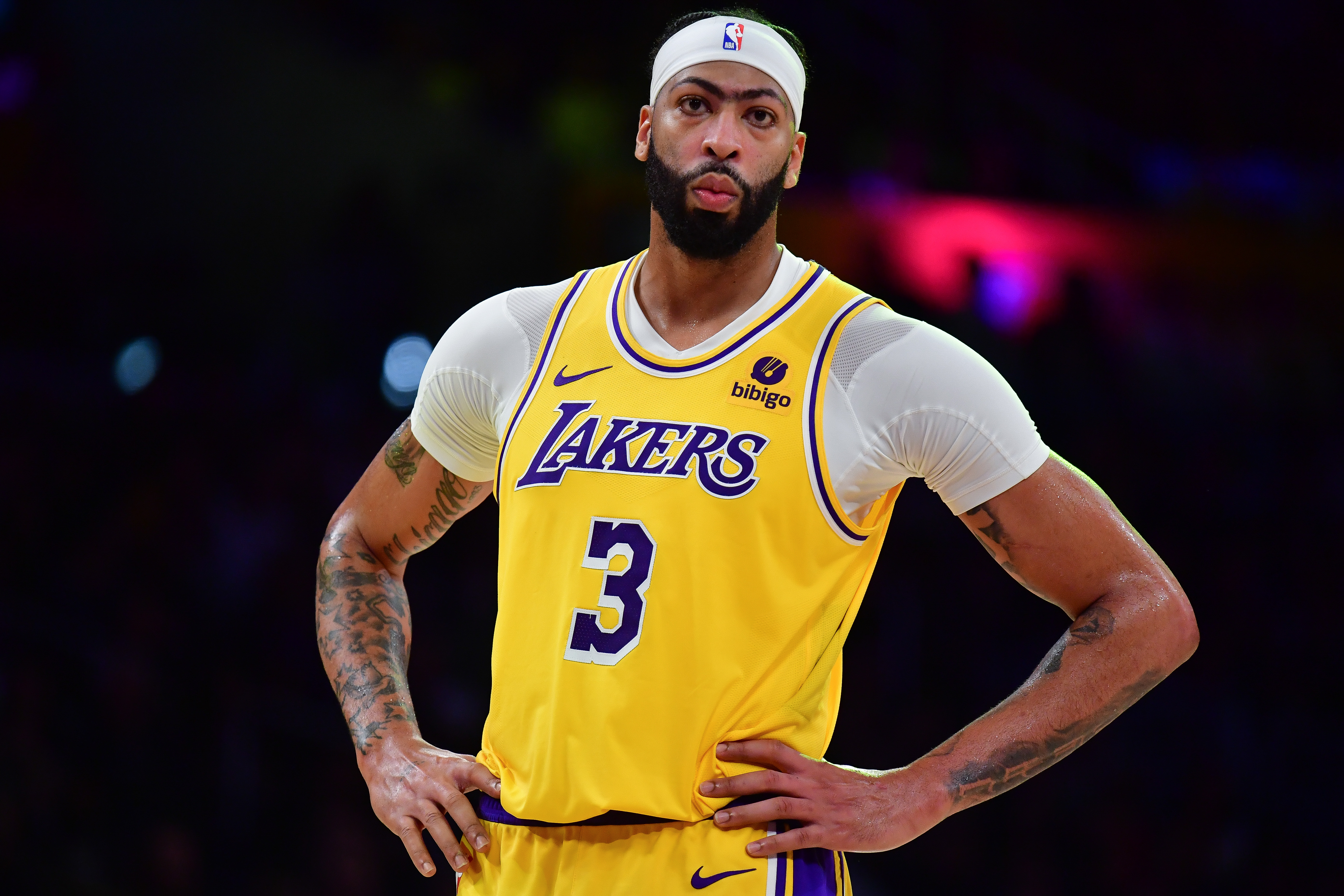
Why We Blame Anthony Davis: Has looked dominant at times, but his disappearing acts at times have hurt his team’s play and leadership has been non-existent. Davis should be the best player on the team and has failed in that regard.
Anthony Davis, as the supposed cornerstone player for the Lakers, has faced criticism for his inconsistent performances and perceived lack of leadership on the court. While displaying dominance in certain stretches, Davis has also been plagued by notable disappearing acts that have negatively impacted the team’s overall play.
The expectation for Davis is to be the unequivocal best player on the team, serving as both the go-to offensive star and a vocal leader. However, he has fallen short of these expectations, relying on LeBron James for leadership rather than taking the initiative himself.
Despite consistently solid contributions on the stat sheet (24.9 PPG, 12.1 RPG, 2.3 BPG) and the potential for a ninth All-Star Team selection, Davis has failed to assert himself as the true leader of the team. The absence of a forceful takeover from James has left a leadership void that Davis has not adequately filled. The supposed torch-passing moment from James to Davis has not materialized as expected, and that is a major problem because the Lakers should be Davis’ team this season.
4. D’Angelo Russell
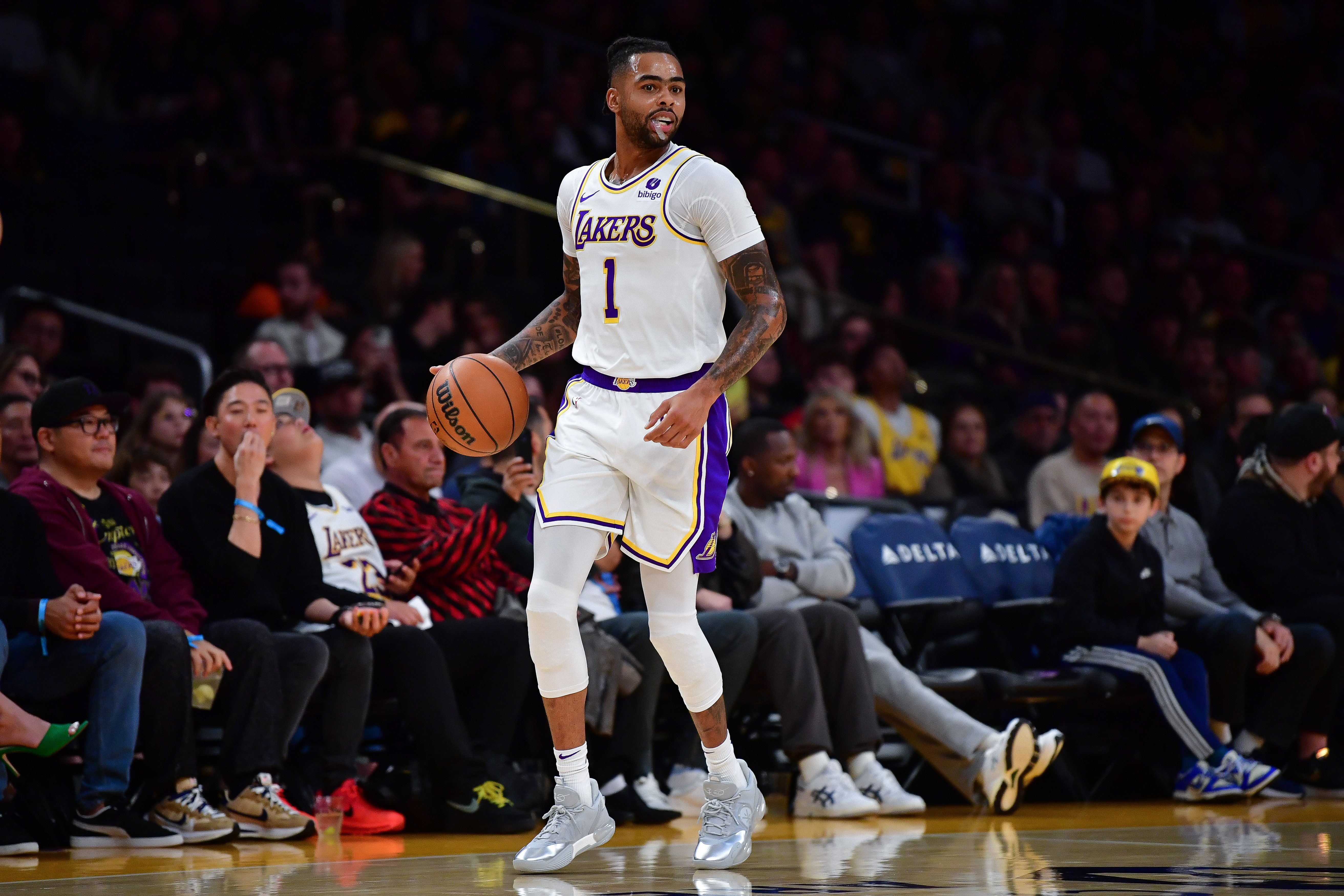
Why We Blame D’Angelo Russell: Even if Rob Pelinka deserves blame for trusting Russell to be the point guard and “third option” for the Lakers, D’Angelo deserves blame for only producing when rumors about him getting traded became widespread news.
D’Angelo Russell, despite being part of a larger organizational decision led by Rob Pelinka, faces criticism for his performance and impact as the point guard and supposed “third option” for the Lakers. While Pelinka may bear responsibility for placing trust in Russell, the blame directed at the player himself stems from his inconsistency.
Russell’s role as the point guard and third offensive option implies a certain level of responsibility and contribution to the team’s success. The critique centers on the observation that Russell’s performance seems to be influenced by external factors, specifically trade rumors. Rather than consistently delivering a high level of play, Russell has been accused of only stepping up his game when faced with the possibility of being traded. Interestingly, it seems Russell has had enough with the media spreading trade rumors.
His numbers look solid, at 17.3 points and 6.1 assists per game, but he has only performed at a high level over the past few weeks. For most of the season, Russell has been absent and he cannot be trusted to perform if the Lakers do end up in the postseason. The position of Lakers point guard is extremely critical, and Russell isn’t the answer.
5. Austin Reaves
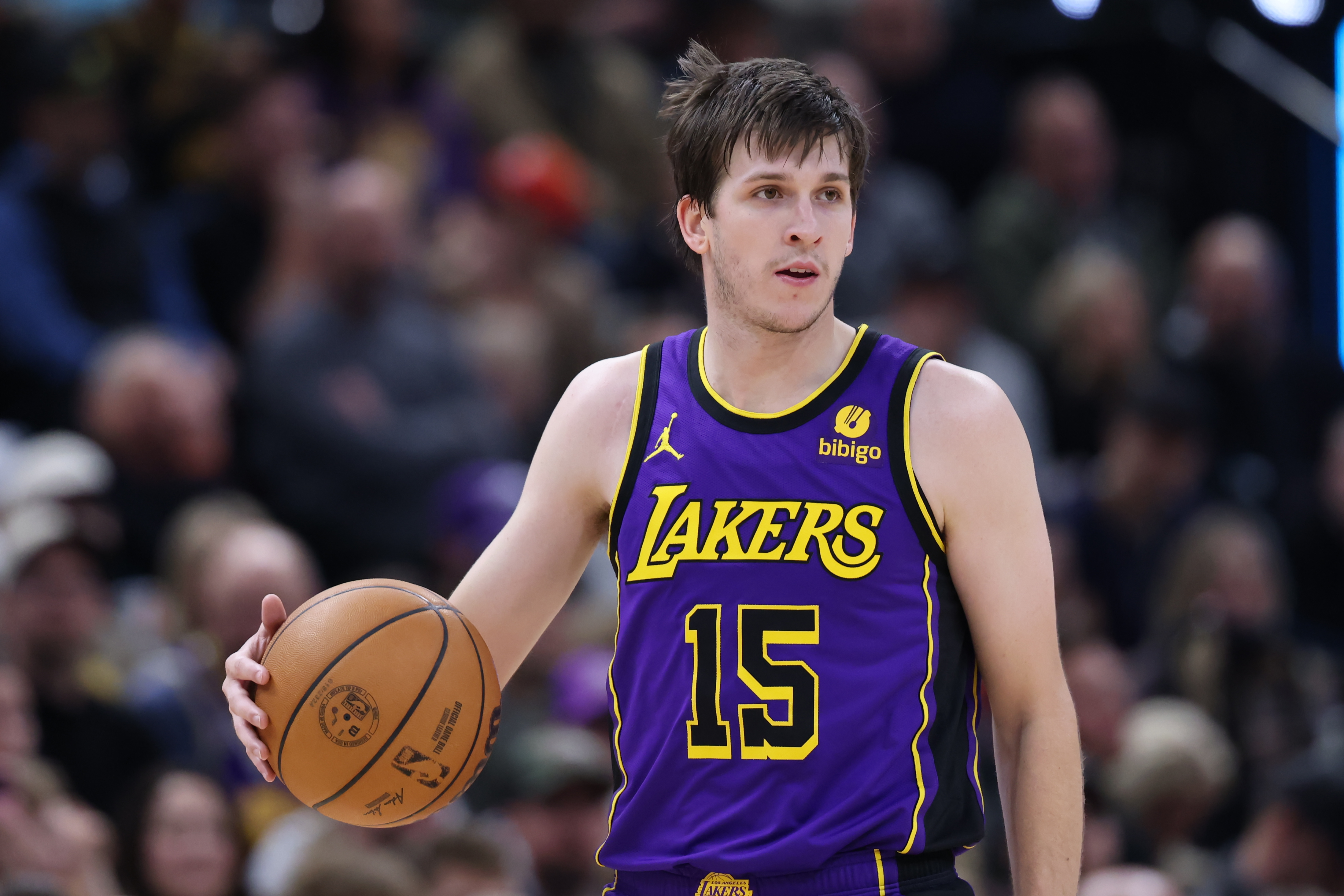
Why We Blame Austin Reaves: Reaves has not elevated his play despite signing a $50 million deal this offseason, and has been relegated to a bench role.
Austin Reaves, despite his promising trajectory as an undrafted rookie, faces criticism for his performance and role on the Lakers, especially considering his $50 million deal signed during the offseason. The blame directed at Reaves centers on his perceived failure to elevate his play to the expected level, particularly as the team was looking for him to take a step forward this season.
Reaves has shown promise in his career, surpassing expectations since the 2021-22 season. However, the disappointment lies in his inability to build upon the success of the 2022-23 season when he performed at a high level in the playoffs. The expectation was that Reaves would demonstrate growth and contribute more substantially, especially given the lucrative contract he secured. Instead, he has plateaued and found himself relegated to a bench role, even if his numbers look decent at 14.9 points, 4.0 rebounds, and 5.2 assists per game.
The Lakers, struggling with a lack of reliable shooters, had hoped that Reaves could fill that void. However, his subpar 34.3% shooting from three-point range has not met the team’s needs, leaving questions about his effectiveness as a crucial piece alongside LeBron James and Anthony Davis. In a team with aspirations for success, Reaves needed to prove himself as a starter, and his failure to do so has contributed to the criticism he is facing and possibly an upcoming trade for the right player.
6. LeBron James
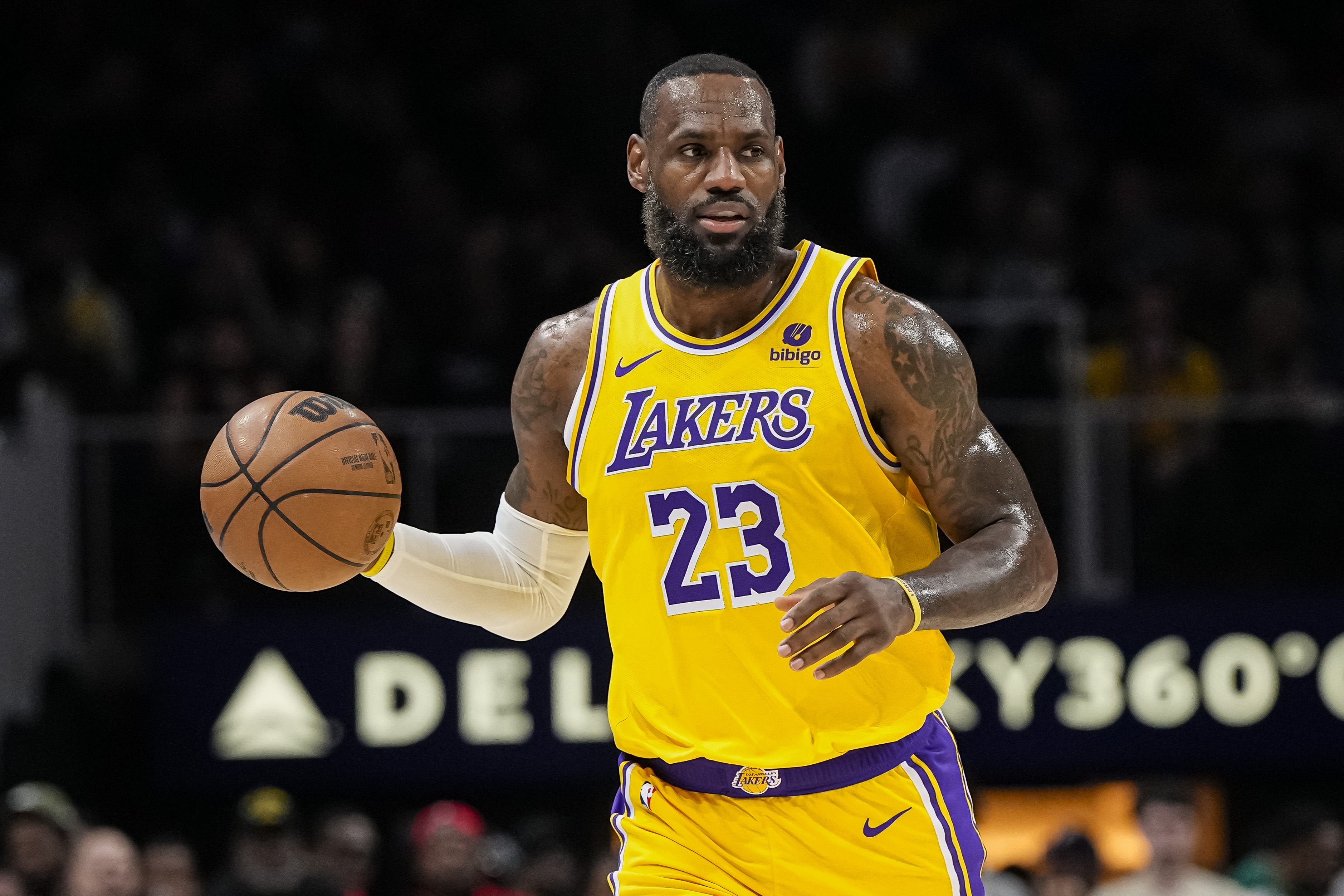
Why We Blame LeBron James: Despite being 39 years old and playing at a high level individually, James has not galvanized the troops as well as he has done in the past.
LeBron James, despite playing remarkably well at the age of 39, faces criticism for his perceived shortcomings in galvanizing and leading the team. While James continues to perform at a high level statistically (25.0 PPG, 7.4 RPG, 7.7 APG), the blame directed at him revolves around the team’s overall play which even LeBron admits has been inconsistent at best.
In the past, James has been known for his leadership both on and off the court, creating a sense of unity and motivation among his teammates. However, the criticism suggests that, despite his individual brilliance, James has not been as effective in leading a cohesive team. Sure, age plays a major role and it is unfair to expect a 39-year-old to be the driving force of the Lakers, that has been the expectation on LeBron’s shoulders.
For whatever reason, James’ impact on the wins column has not been there for the Lakers and he has yet to widely hold anyone accountable. It seems that James could be satisfied with his resume that has four championship rings because the goal of equalling Michael Jordan’s six seems completely out of the question right now and that raises some eyebrows.
7. Rui Hachimura
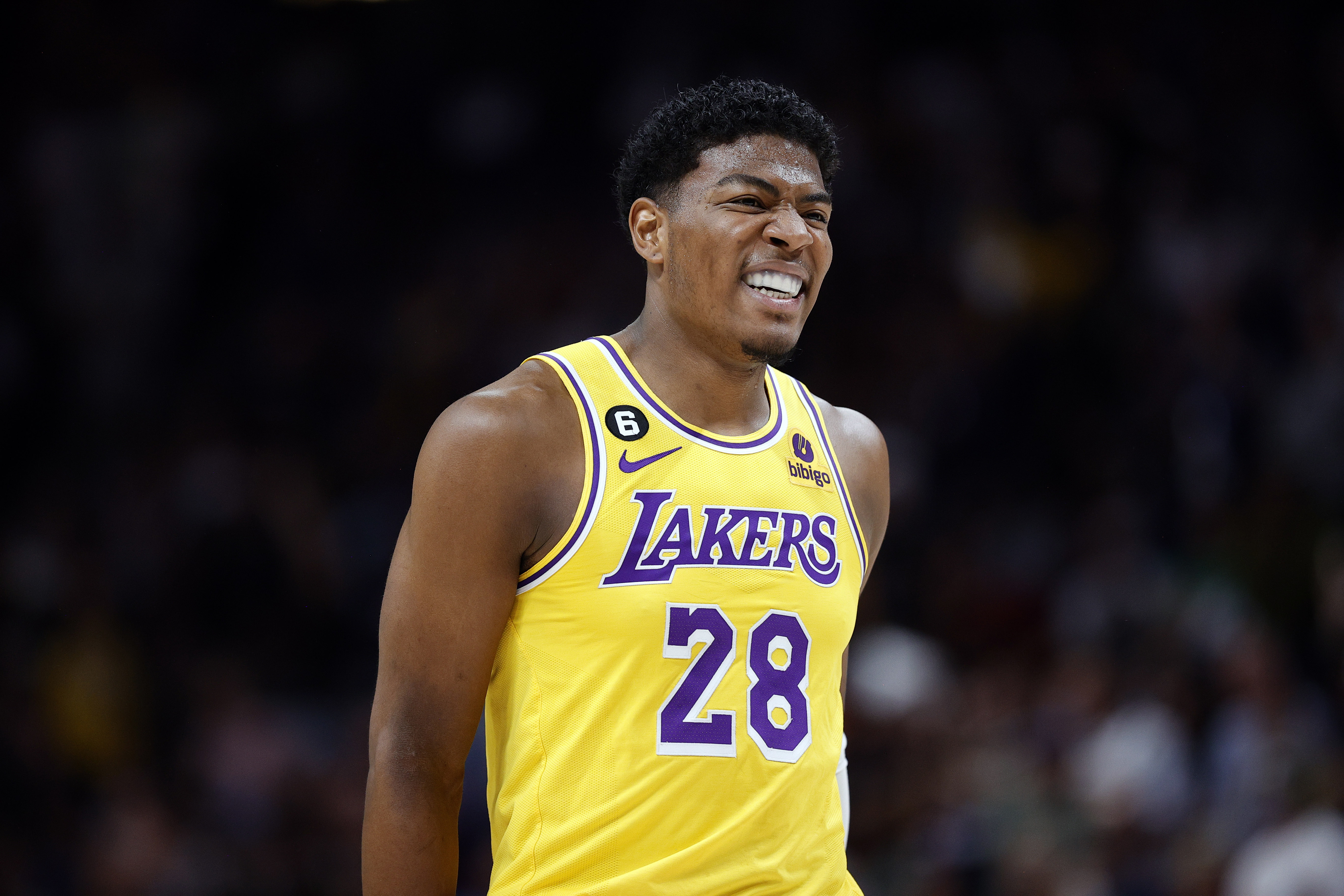
Why We Blame Rui Hachimura: Hachimura has proven to be nothing more than a role player throughout his career, but he has not improved his game since his rookie season and could be wasting his potential.
Rui Hachimura faces criticism for his perceived failure to evolve beyond the role of a mere role player despite spending several seasons in the league. The blame directed at him revolves around the notion that he has not demonstrated significant improvement in his skills and impact since his rookie season when he posted 13.5 points and 6.1 rebounds per game.
While Hachimura has contributed as a role player, the expectation is that players develop and expand their skill sets over time. The criticism suggests that Hachimura’s progression has been stagnant, with no discernible advancements in his game. After all, he is only averaging 11.2 points and 3.5 rebounds per game this season without having much of an impact when he has played.
Rui is shooting 38.8% from three which is impressive but he has not encouraged Darvin Ham to play him more than 22.8 minutes per game. Ham and the coaching staff should get blamed for not playing Hachimura enough, the player hasn’t exactly set the world on fire when he has played and that is unacceptable.
8. Jeanie Buss
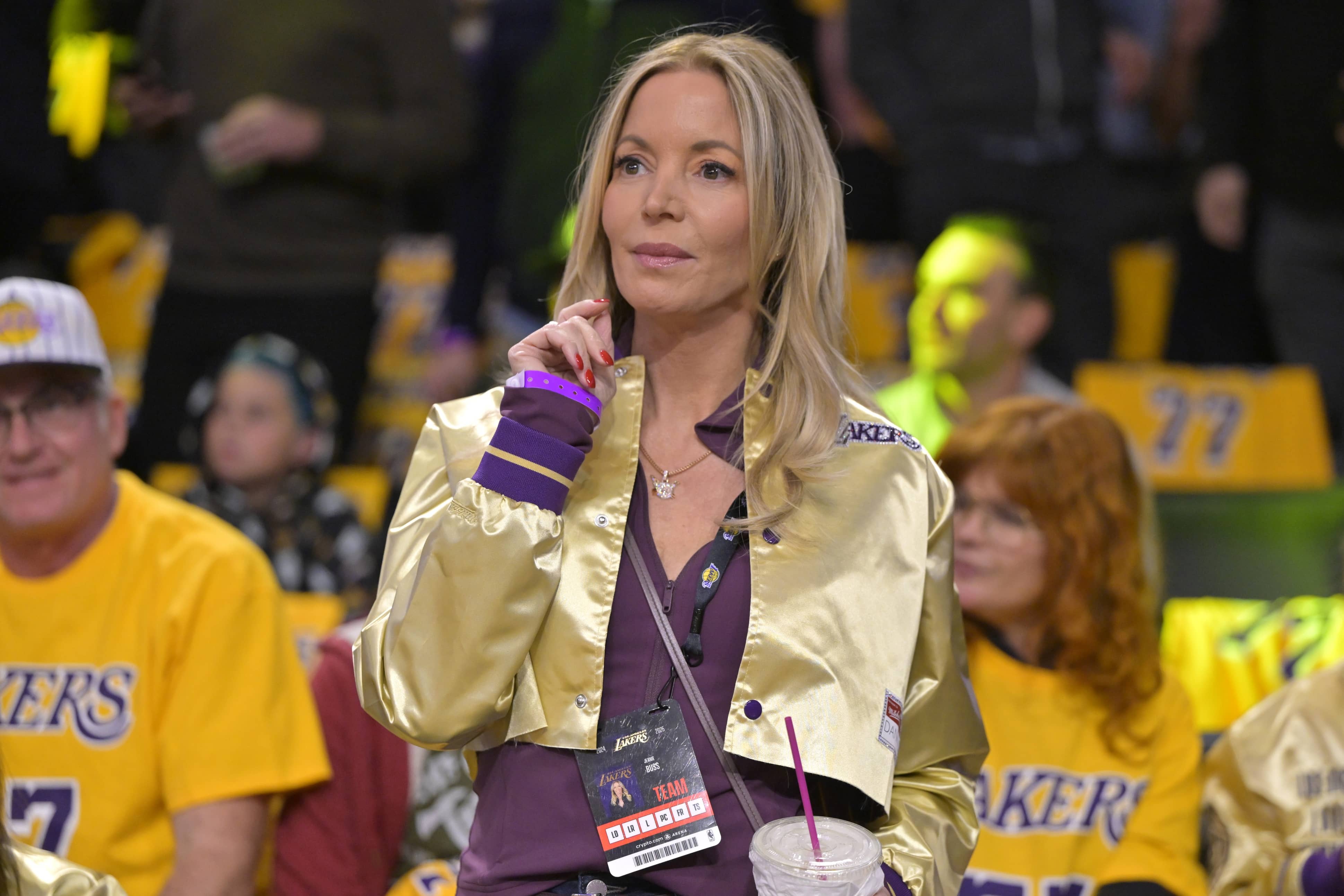
Why We Blame Jeanie Buss: A cut-throat nature is required from Lakers brass, and Buss has been a bit too patient in handling her team when it comes to coaching and players as LeBron James approaches retirement.
Jeanie Buss received criticism early on in her career for being too “nice” in how she deals with aspects of the Lakers roster, and those criticisms are firing up again. Buss is part of an impressive lineage that has helped make the Purple and Gold jerseys the most recognized in the NBA, but that should not excuse her for what has been happening.
The Lakers have been faltering ever since the 2019-20 championship season, even if they made the Western Conference Finals last year. Buss needs to assert her dominance, make it known that a .500 record is unacceptable, and place heavy pressure on Rob Pelinka to make trades to bring in another All-Star player.
Instead, Jeanie Buss has seemingly remained patient with the roster’s core and perhaps waited too long to keep Darvin Ham in charge. Say what you will about Doc Rivers, he is an experienced coach with plenty of evidence in handling superstar players, so would he have been a better choice for the Lakers? What about Mike Budenholzer? With no evidence that the Lakers are looking at new coaches or even star players, the ownership deserves blame.
9. Gabe Vincent
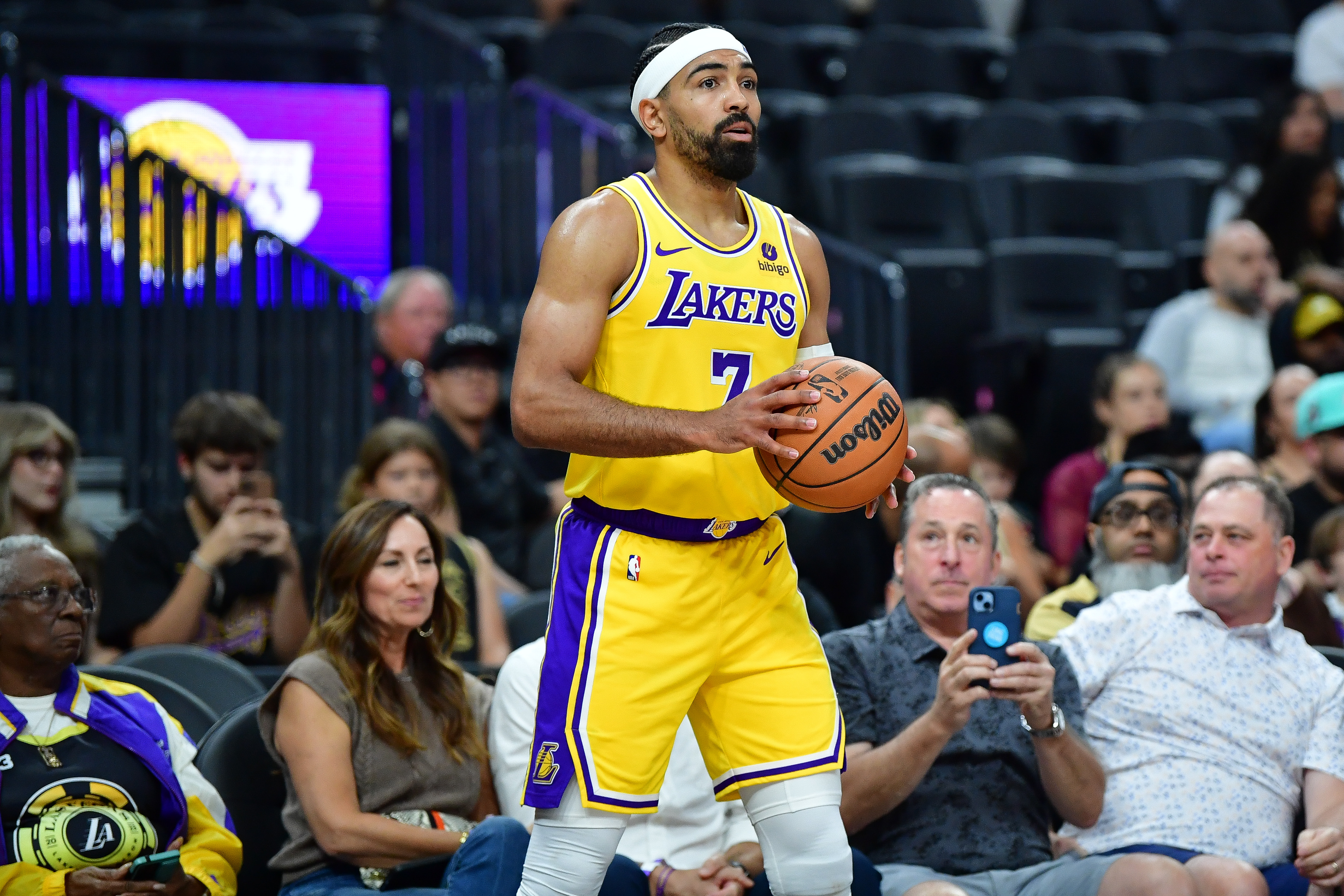
Why We Blame Gabe Vincent: While a player should not be blamed for being hurt, Vincent was supposed to play a major role but has not been available for the Lakers and blame should fall on him regardless.
Gabe Vincent faces criticism for his perceived failure to contribute as expected due to his unavailability, despite the understanding that injuries are part of the game. The blame directed at Vincent revolves around the anticipation that he was slated to play a significant role for the Lakers, yet has been unable to fulfill that role due to injuries.
The blame directed at Gabe Vincent highlights the inherent challenge teams face when key players are sidelined. Vincent was expected to be a major contributor, and the frustration arose from the perceived failure to meet those expectations due to his injuries. Vincent played a significant role in Miami’s championship run last year and has only played five games this season. Remember, the Lakers signed Kendrick Nunn after Miami’s Finals run in 2019-20 and looks like they have made the same mistake with Gabe Vincent.
10. Christian Wood, Jaxson Hayes, & Cam Reddish
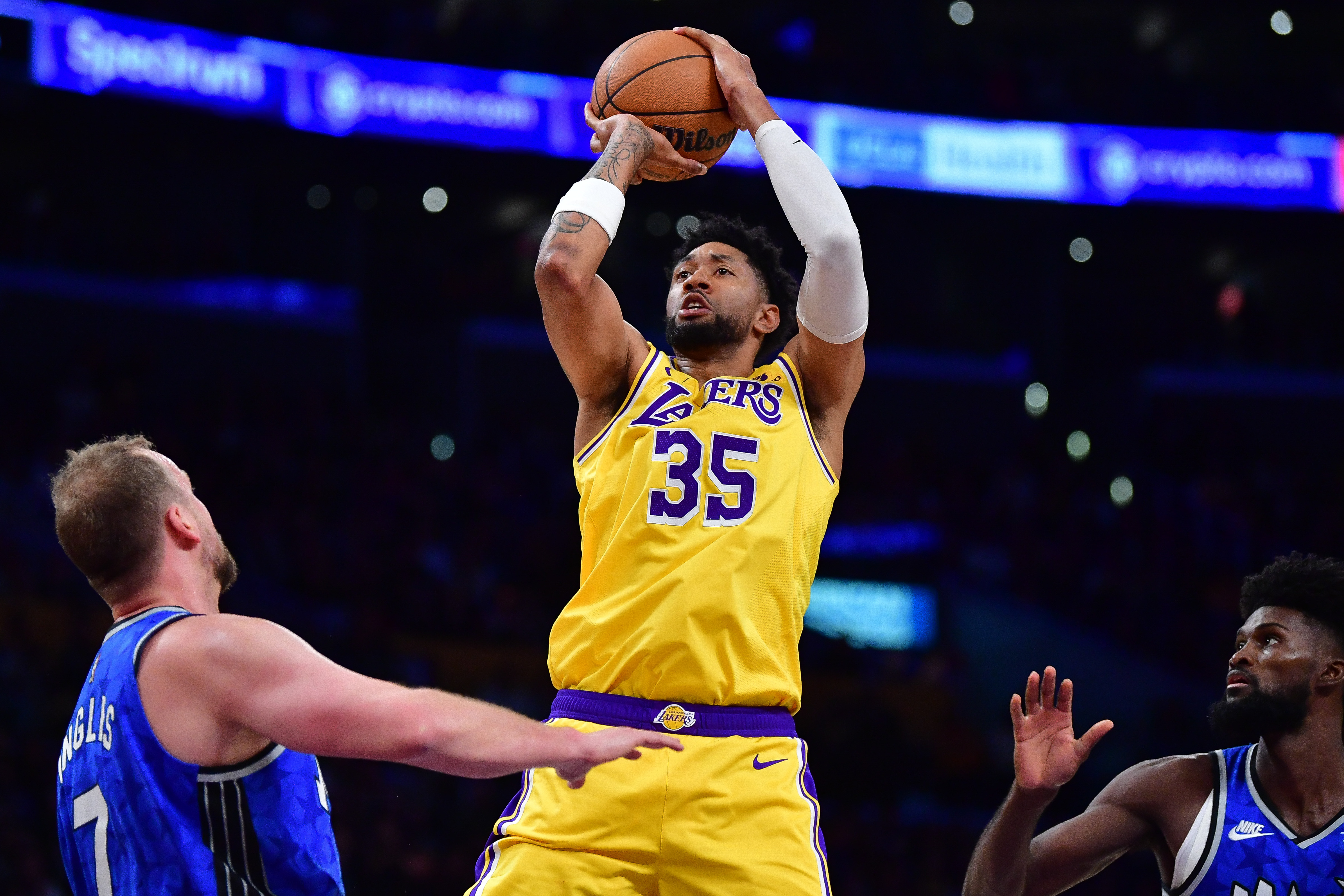
Why We Blame Christian Wood, Jaxson Hayes, & Cam Reddish: None of these three bench players have proven to be worthy of trust by Darvin Ham or the rest of the coaching staff, even if their talents are not being properly utilized.
Role players are expected to do what they are supposed to: play roles. Christian Wood looked like a budding All-Star with the Houston Rockets in the 2020-21 season, posting 21.0 points and 9.6 rebounds per game, but his production has been minimized significantly since then. With the Lakers, he is only posting 7.1 points and 5.3 rebounds per game.
Jaxson Hayes is supremely athletic and has plenty of size, but he has also underwhelmed when on the court, posting 3.0 points and 1.7 rebounds per game in 37 appearances. Hayes has not developed as we expected him to, and the 23-year-old might start generating an image of a negligible talent.
Cam Reddish was a standout player for Duke University but even after getting drafted No. 10 overall in the 2019 NBA Draft, he has not proven to be a valuable asset for any team. With the Lakers this season, he is averaging only 6.7 points and 2.4 rebounds per game in 35 appearances and much was expected from the current 24-year-old who might never reach his potential.
Thank you for being a valued reader of Fadeaway World. If you liked this article, please consider following us on Google News. We really appreciate your support.






